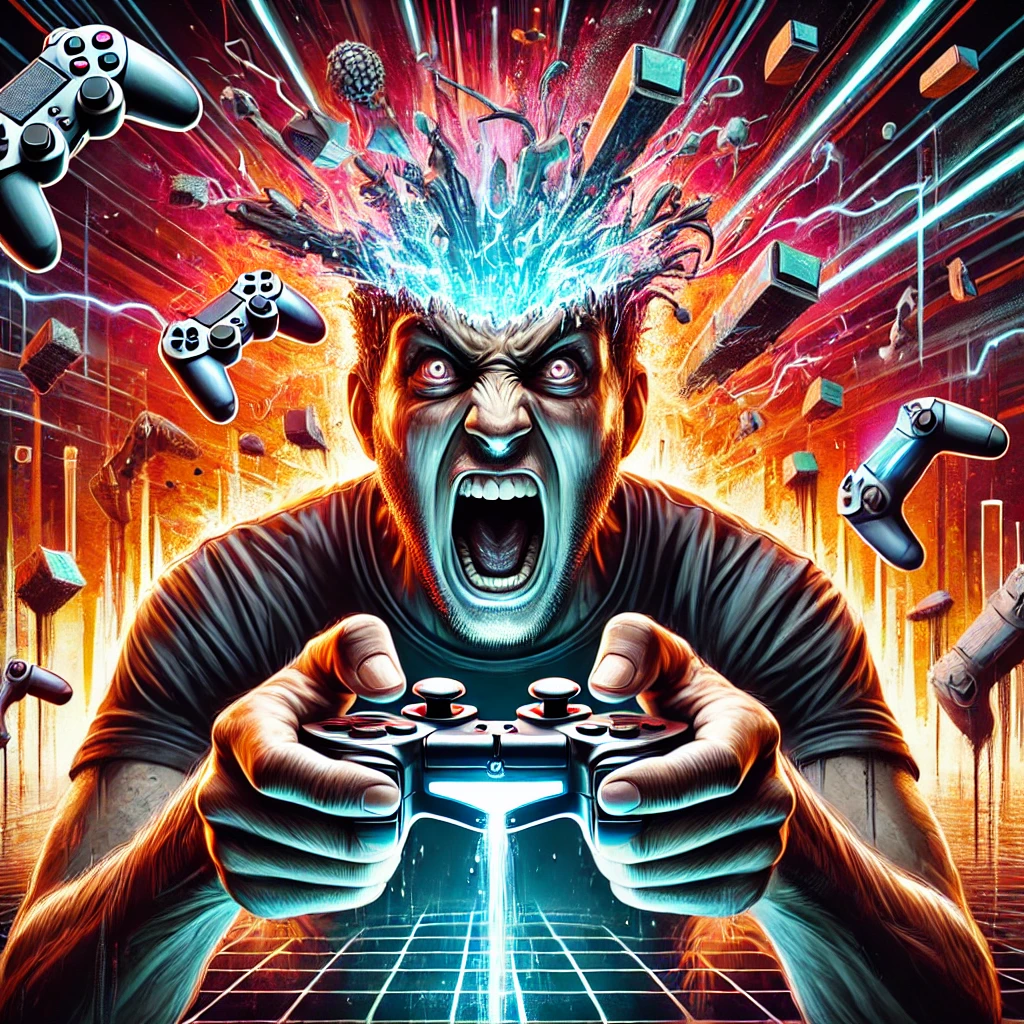Introduction
Ever thrown your controller across the room in frustration, only to pick it up and try again? If so, you’ve experienced the addictive pull of “rage games.” These brutally difficult yet oddly satisfying games challenge our patience, but why do we keep coming back for more? The psychology behind rage games reveals fascinating insights into human behavior, motivation, and the thrill of overcoming adversity.
What Are Rage Games?
Rage games are video games intentionally designed to be frustratingly difficult, often requiring precise timing, extreme skill, or relentless trial and error. Popular examples include Getting Over It with Bennett Foddy, Dark Souls, Jump King, and Super Meat Boy. These games are notorious for their punishing mechanics, unpredictable obstacles, and minimal hand-holding.
The Psychology of Frustration and Motivation
Rage games trigger a mix of emotions—anger, excitement, determination, and euphoria. Here’s why they captivate us:
- The Challenge-Reward Loop
- Games like Jump King use a simple yet effective loop: struggle, fail, improve, succeed. This cycle taps into our brain’s reward system, releasing dopamine when we finally progress after multiple failed attempts.
- The “Just One More Try” Effect
- Frustration often fuels persistence. Psychologists call this the Zeigarnik Effect, which suggests that people are more likely to remember and return to unfinished tasks. The feeling of being so close to victory keeps us hooked.
- Masochistic Enjoyment & Gamer Pride
- Some players thrive on hardship, taking pride in overcoming near-impossible challenges. This ties into self-determination theory, which states that humans are driven by a need for competence and mastery.
- The Social Factor
- Rage games are a spectacle. Whether streaming on Twitch or sharing a viral rage-quit clip, the social aspect fuels their popularity. Watching others struggle and triumph creates a sense of camaraderie and entertainment.
- The “Rage Quit” Phenomenon
- While many players give up in frustration, others return with renewed determination. This is because failure in rage games feels fair—if you mess up, it’s usually your fault, making success all the more rewarding.
Why Do We Love Them?
Despite the hair-pulling difficulty, rage games leave a lasting impact. They teach patience, problem-solving, and resilience—qualities that extend beyond gaming. The thrill of finally conquering a difficult level makes all the frustration worthwhile, creating an unforgettable experience.
Conclusion
Rage games tap into our deepest psychological drives, offering a mix of agony and ecstasy. While they test our limits, they also provide unmatched satisfaction upon victory. So, the next time a game pushes you to the brink of madness, remember—there’s a reason you keep coming back for more.

